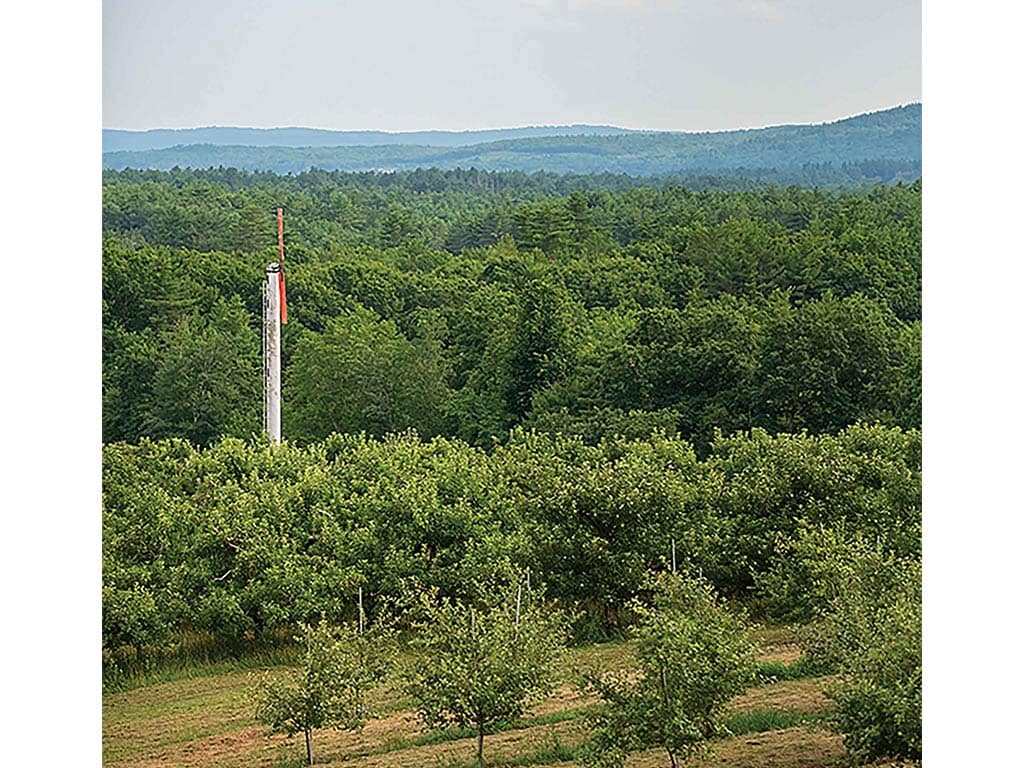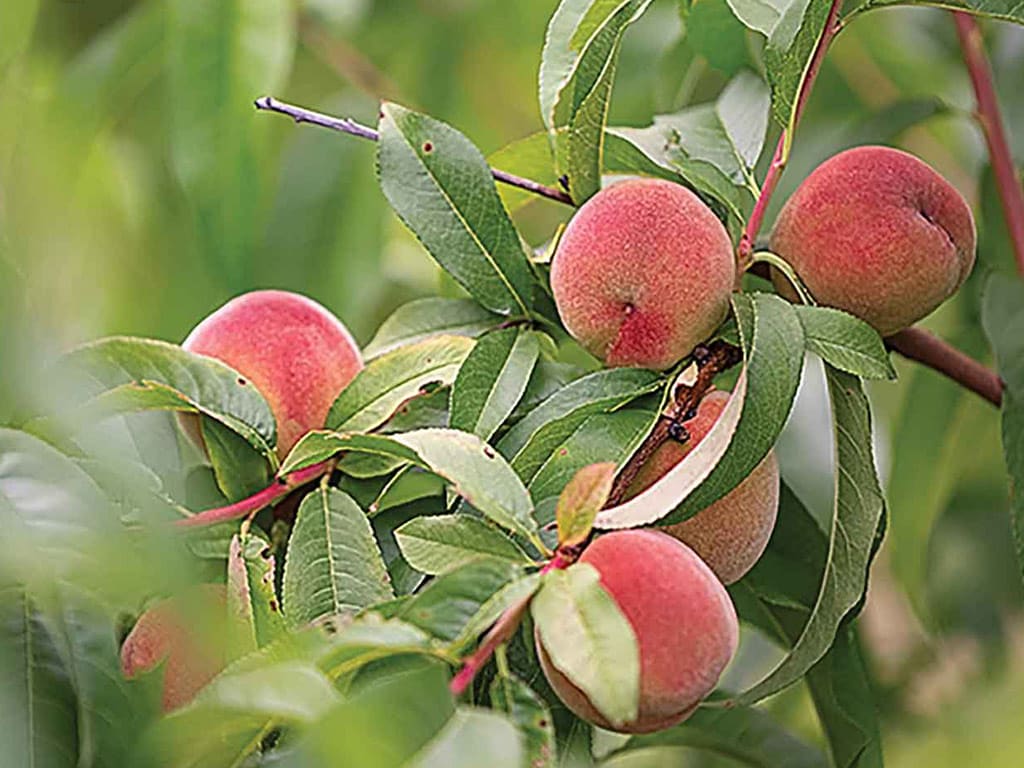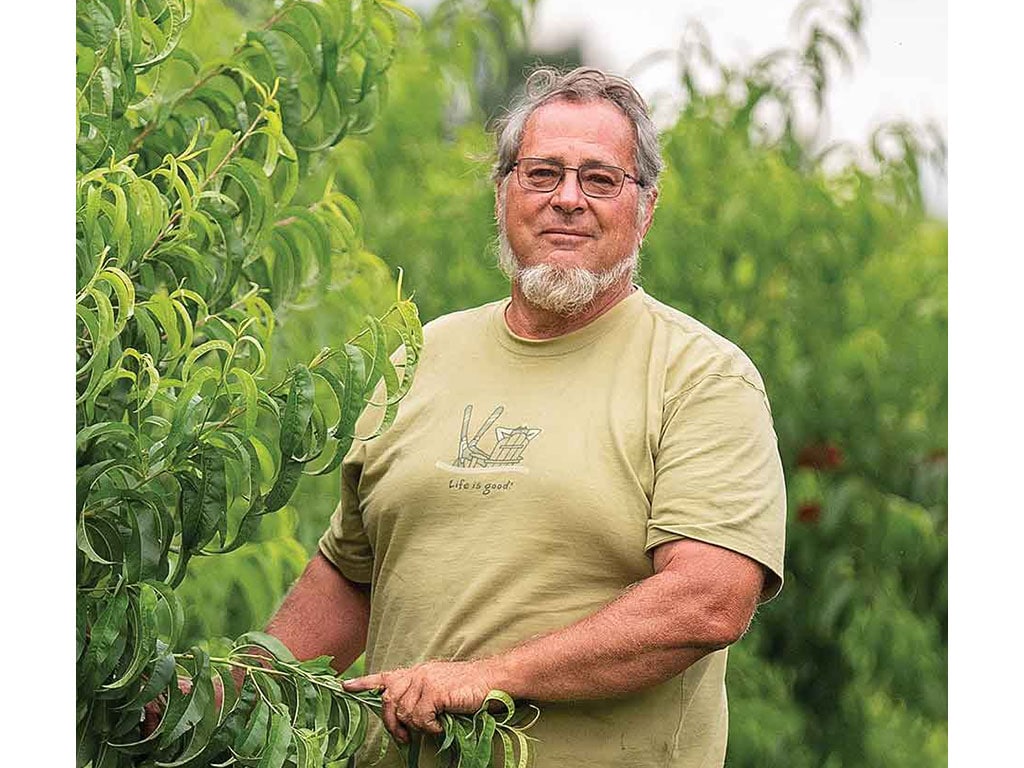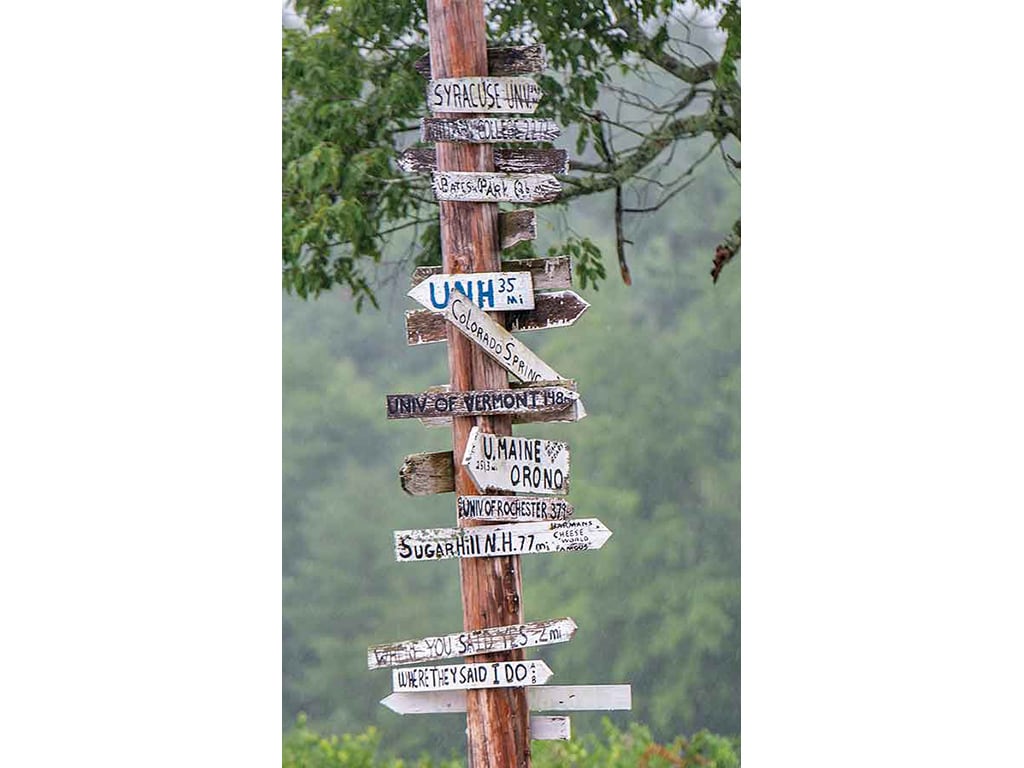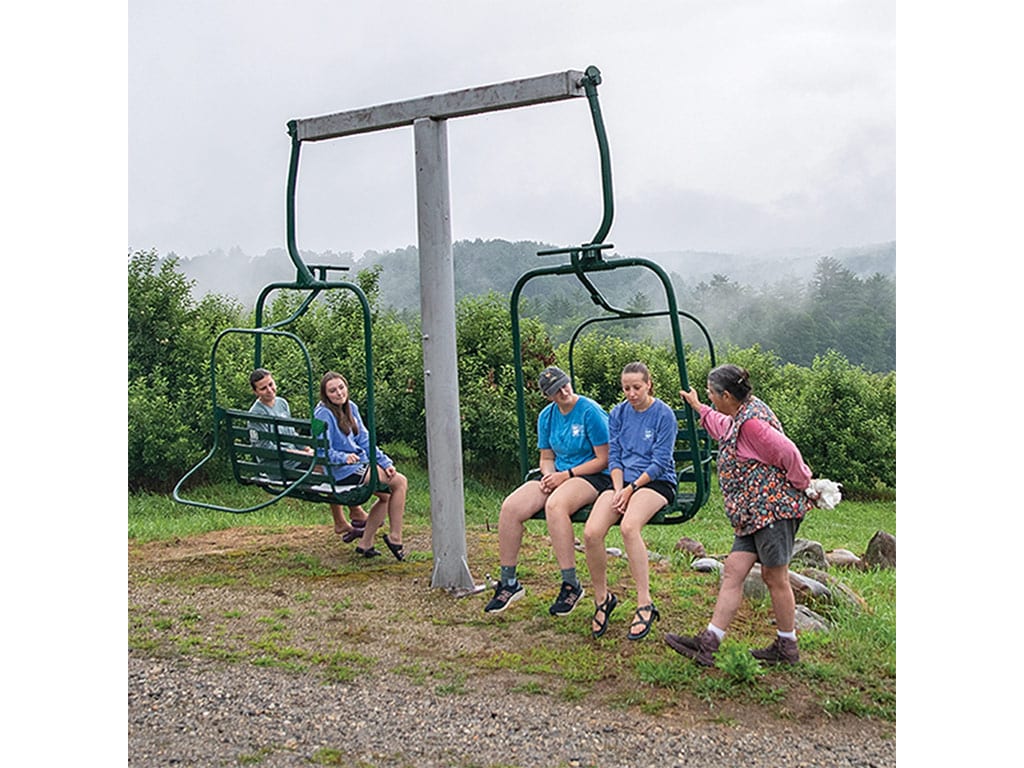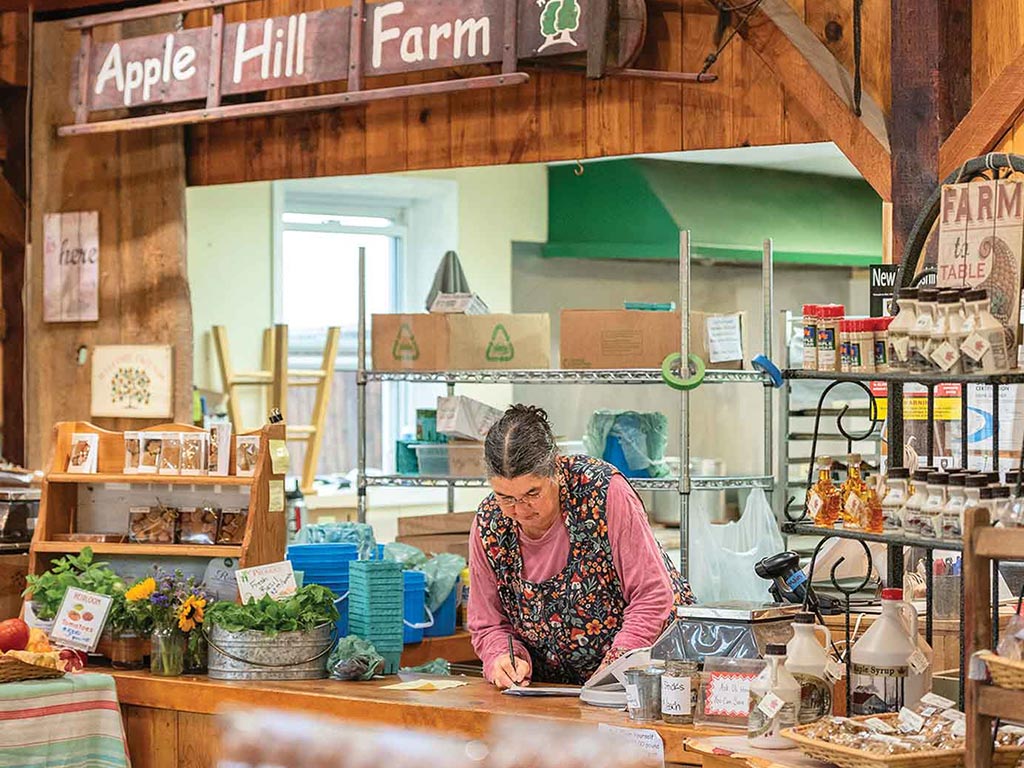Agriculture, Education June 01, 2025
Breaking the Cold Barrier
Peach varieties push northern boundaries.
by Katie Knapp
When you think of picking a ripe, mouth-watering peach in the middle of summer, you probably don't think of that tree being in central New Hampshire. But farmers Chuck and Diane Souther have spent decades proving it's possible and now are helping researchers determine which varieties are best that far north.
"Diane calls them 'bend-over peaches,'" Chuck laughs as he bites into one from their orchard north of Concord, N.H., and instinctively leans forward so the juice misses his shirt.
After falling in love in high school while working together on nearby farms and skiing in the mountains, they purchased an abandoned farm in 1978. They started growing apples and then added peaches in the 1990s.
Today their 30-acre farm includes fruit trees, berry bushes, and vegetables along with a thriving market. Overlooking it all is a chairlift from the ski area where they had their first date.
The Southers have carved their path in farming through constant experimentation, much like the fresh tracks they often made as young skiers. This has led their farm to become a go-to spot for researchers to try new varieties and management practices.
"If you need land to try something, we're game," Chuck says, grateful for the opportunity to help the whole region. "Sometimes we learn what doesn't work, but that's valuable, too."
Above. Chuck and Diane Souther have called Apple Hill Farm, north of Concord, N.H., home since the late 1970s. They just finished a three-year research trial to help determine the cold-hardiness of 33 peach varieties. Apple Hill Farm is both a pick-your-own, enjoy-the-day destination and a research farm. Many area high schoolers help harvest and bake pastries with Diane at the same time as researchers like Jeremy DeLisle gather data in the orchard.
Cold, hard facts. Most recently, University of New Hampshire Extension specialist Jeremy DeLisle and University of Maine researcher Renae Moran collaborated with the Essex County Fruit Growers Association in Massachusetts to study 33 peach varieties at Southers' Apple Hill Farm for three years.
Even though Southers have successfully produced peaches for decades, it is still tricky—even risky—in their climate. The limiting factor is sustained cold temperatures in late winter, particularly if it hovers below minus 15 degrees Fahrenheit.
"Most folks think peaches can't handle northern winters," explains DeLisle. "But it's more complex than just temperature. We're looking at how different varieties respond to the freeze-thaw cycles that often cause the most damage."
Area farmers have been choosing varieties first based on ripening date and then flesh color, shape, and flavor. The researchers studied the cold hardiness of the most desirable varieties.
"Once we hit September, customers switch to thinking about apples," Diane explains. "So, we need varieties that not only survive winter but ripen during our summer market window."
Through the growing season, DeLisle collected pressure, Brix, and harvest data on each variety. Then through each winter, Moran collected branch samples and exposed them to precise temperature drops in programmable freezers.
This controlled testing has identified a few clear winners for the northern growers. The yellow-fleshed varieties Redhaven, known for its sweetness, and Contender, which is frost resistant, proved most cold-hardy, along several other varieties.
Moran, who is also breeding new varieties in Maine, says site selection is also important. On farms with varying elevation, higher planted trees have better odds of surviving harsh winters.
"Not every farmer is going to dig for the research," Chuck acknowledges. "The nuts and bolts stuff like pruning will always be there, but learning something new—that's what keeps farming interesting." ‡
Read More

AGRICULTURE, SPECIALTY/NICHE
Big Things Under the Surface at Itty-Bitty Acres
Small farm enlists massive microbe army to nurture crops.


